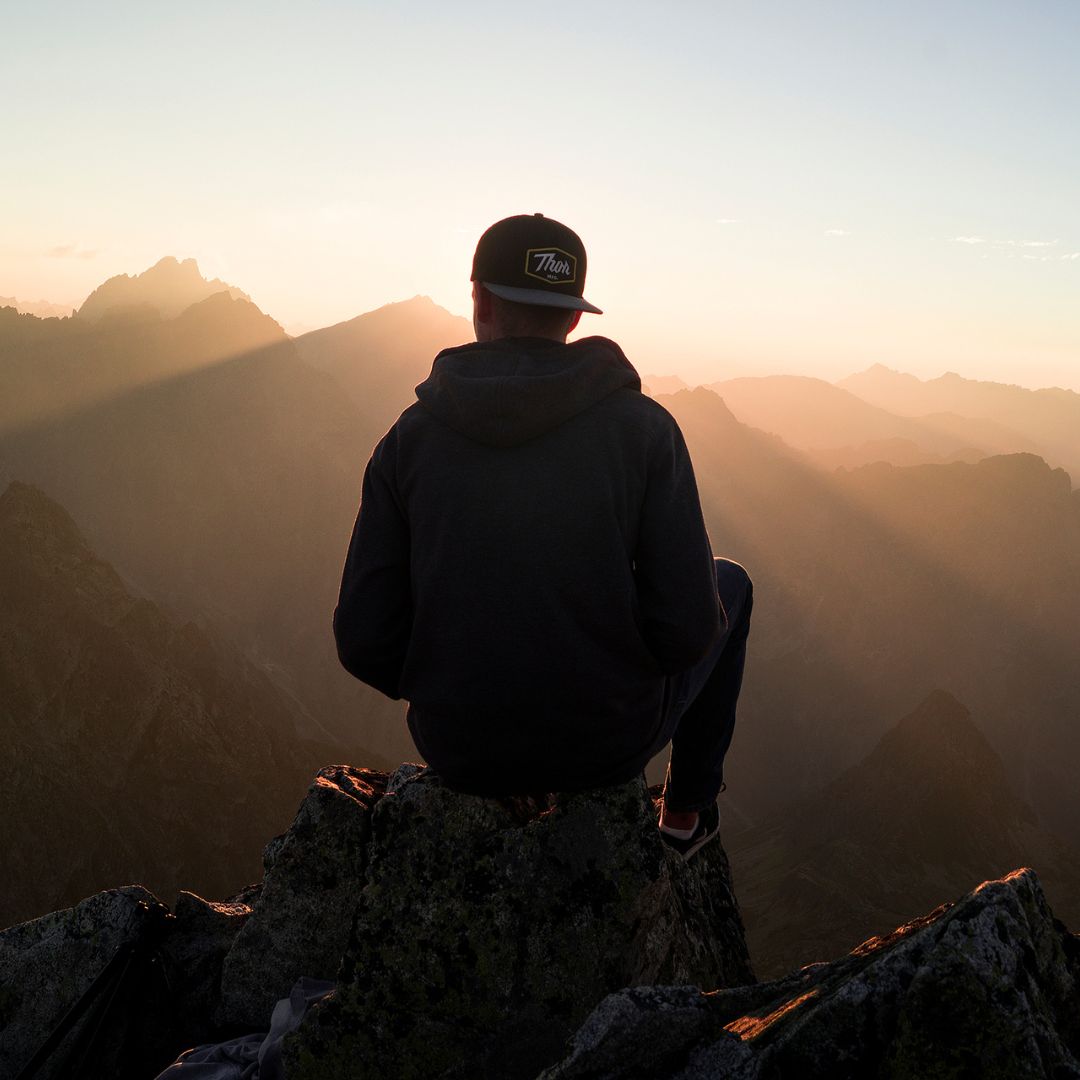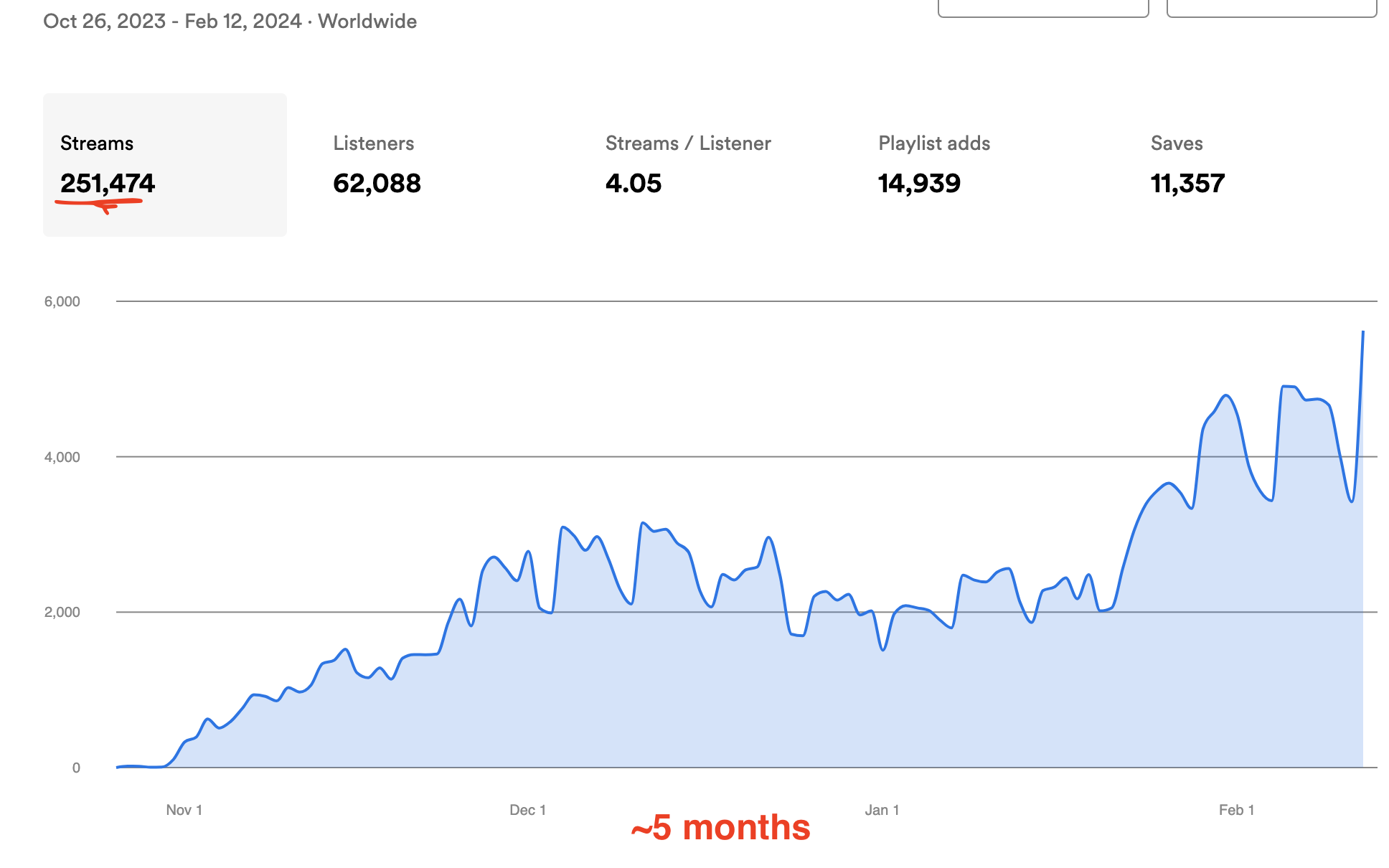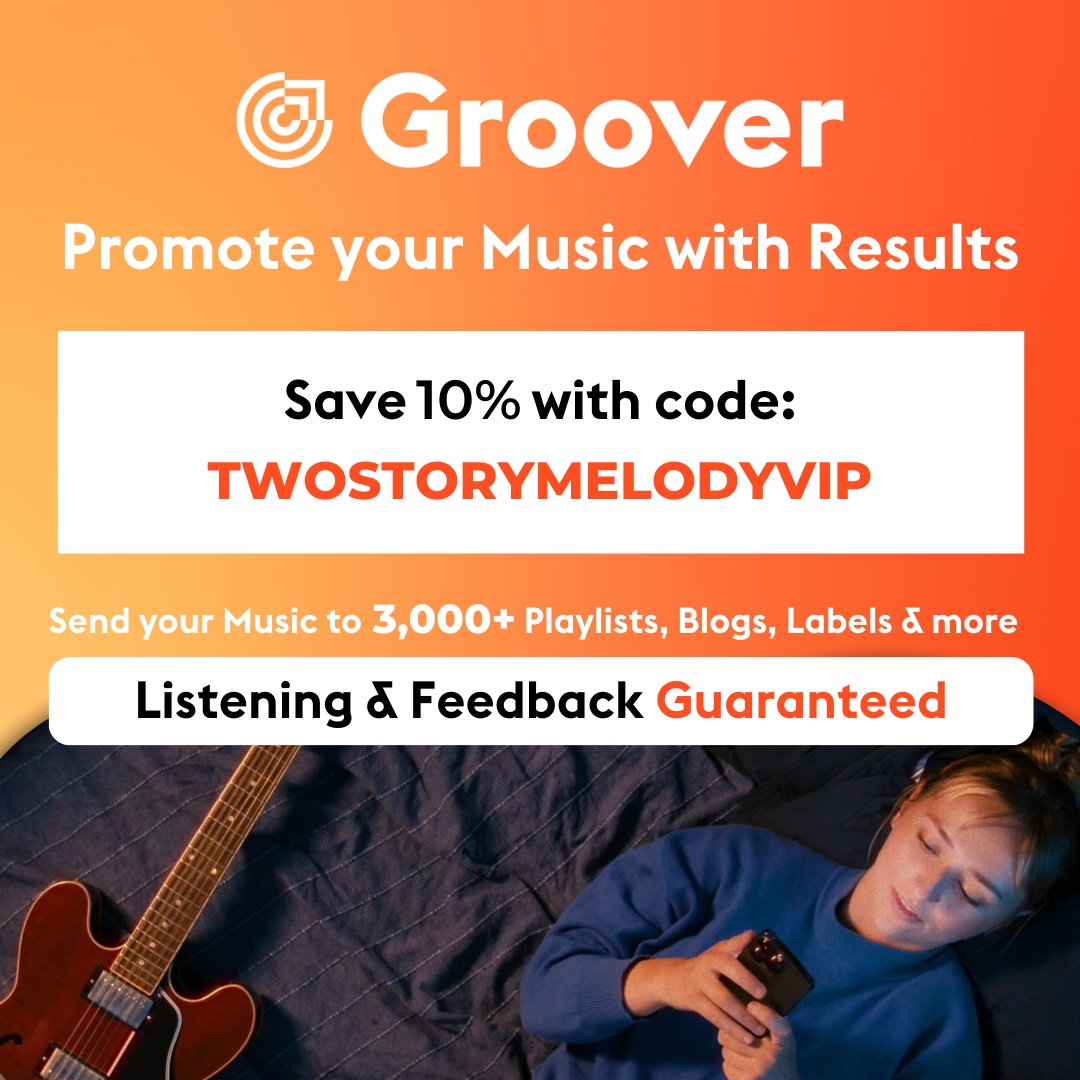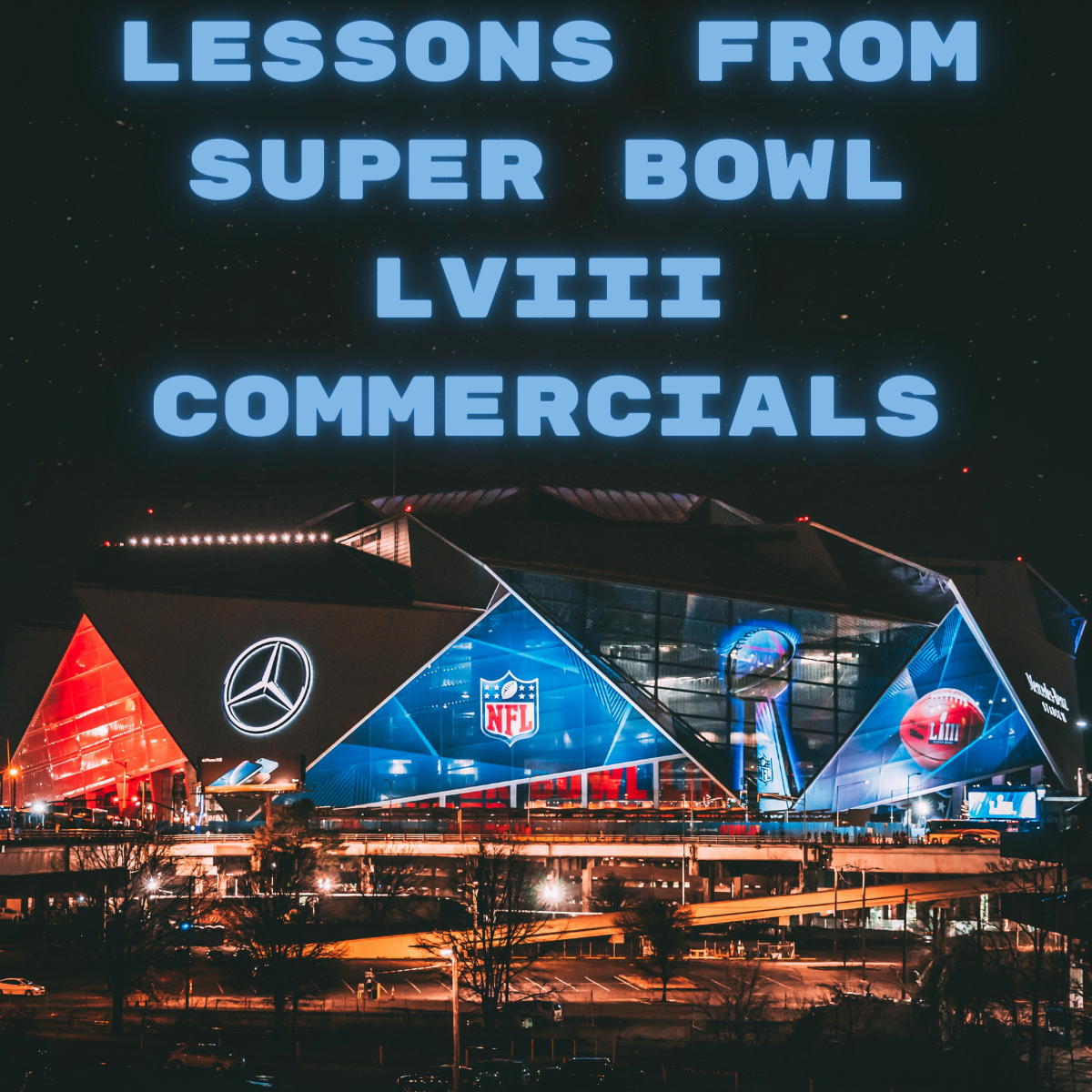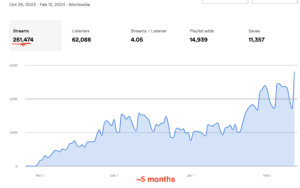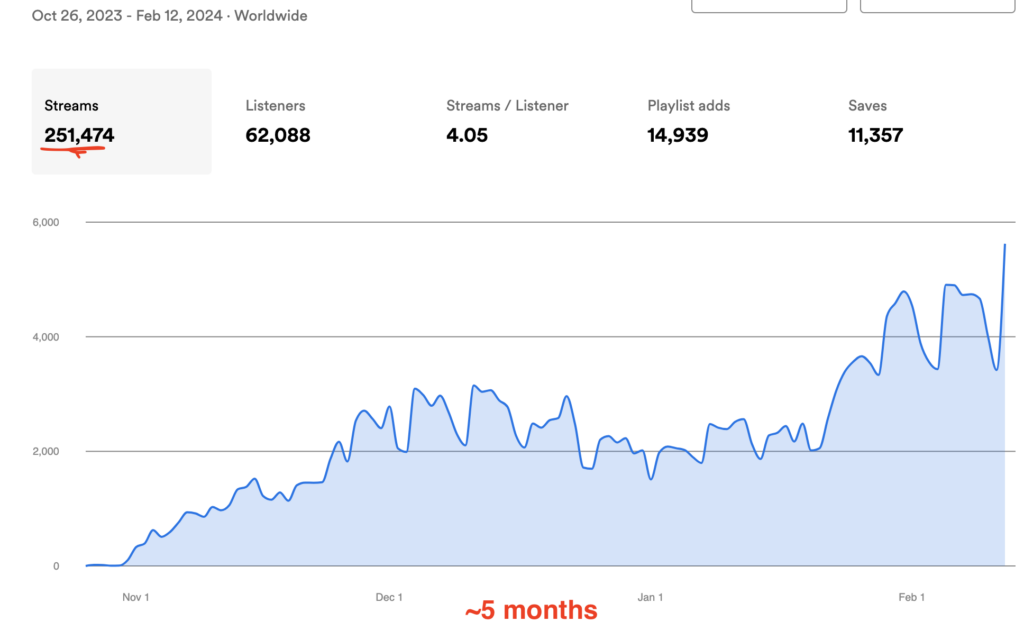What’s the point of it all?
If your mind has ever circled this question like flotsam in a whirlpool as you lie in a cold sweat staring at the ceiling at 3am, poring over all that could’ve been, all that still might be, and all the wide-spiraling wonder of existence – well, today’s your lucky day, because I’m going to tell you the answer.
The answer is this:
42.
Sorry. I’ve always loved that joke.
In seriousness, while I am a fan of big questions, I think for the purposes of this newsletter it probably makes sense to scale things back just a bit. So let’s try again with this one:
What’s the point of making and marketing music?
More manageable, but still a big question.
I’ve been thinking about it again lately (although not, usually, at 3am), because during a few recent consulting calls, I’ve asked people, “What’s your goal with this promotion?” and gotten uncertainty back.
Uncertainty is understandable.
Most of us, I think, have a general feeling that we’d like more people to hear our music, coupled with a desire to make a little money from it, if we can. But past those general concepts, most of us get a little hazy.
I’ve got two thoughts here.
The first is that it’s very helpful to set clear goals for your music and marketing – you know, SMART goals, targets with numbers and timelines and tangible steps to take.
Specific goals clear up the haze.
Like, when you say you want more people to hear your next release, do you mean 1,000 people or 1,000,000 people? And do you mean you want 1,000 streams in the first month, or 1,000 CD sales in the first year?
Depending on how you specify your goals, your action steps toward them will look very different – even if they’re both moving toward that same hazy concept of “getting more people to hear the music.”
The second thought, which is inevitably going to lead me on a rabbit trail, is this: the underlying point of it all is always relationship.
I’ve said this before: If you’re looking to make money, there are a million easier ways to do it than as a musician. Go sell online courses or something. (Heh.)
But if you’re looking to communicate meaning and emotion to other people – and to illuminate those things for yourself – well, there are few better ways to do it than through melody.
Music is a means toward relationship.
That’s the end goal.
With that in mind, I think it’s helpful to remember that as much as we all want to see big numbers next to our songs on Spotify, probably the most impactful marketing efforts we can make are toward our own fans.
A few years ago, I wrote that I think 80% of your music marketing should be focused toward people who have already built relationships around your artistry.
That was a bold statement.
I’m not sure if I’d stick by the exact number today; I love the Pareto Principle as much as the next guru, but I definitely haven’t spent 80% of my own time marketing to existing fans.
But I do think that the overall point I was trying to make holds true, because I’ve seen it firsthand.
I rarely talk about my own artistry here.
Truthfully, it’s because I’m not all that proud of it.
But over the past couple of years, I’ve spent thousands of dollars on Facebook ads for my own music, and my catalogue as a whole has several hundred thousand streams, mostly from a song Tom wrote (it’s a very good song ha).
What I’m trying to say is that most of my own effort in marketing my music has gone toward reaching a few new ears.
And that’s been… fine.
But by far the most rewarding thing I’ve ever done artistically was to play a small show with my brother when we released an EP in honor of our grandparents.
There were, I don’t know, 100 people there, max – most of them friends and family, all of them “fans” I guess, some of whom had driven hours to be there.
Honestly, I didn’t play all that well. I’m not a great musician. But those people sat for a couple hours and listened through songs that meant something to my brother and I; they shared the moment and our memories, and they gave them both weight.
I couldn’t tell you the cost-per-click of my latest ad campaign or how many streams my top track has had in the past month.
But I’ll never forget playing that small show. It meant so much more than numbers could quantify.
All of this is a meandering way of saying this:
The next time you think about marketing your music, think about how you can engage the people who already care about it, not just blast it out to someone else. Because ultimately, engagement with your fans matters most.
Finding fans matters too, of course; you’ve got to start somewhere.
But once you find your fans, you shouldn’t forget about them in a never-ending search for the next pair of ears.
Instead, you should focus on them.
There are a million possibilities for doing this:
- VIP shows (or livestreams) where you only make 10 tickets available
- NFTs (still a confusing thing but still potentially cool)
- An event where the proceeds benefit your favorite charity
- Custom merch – hand-signed CDs, handwritten lyric sheets, hand-carved wooden figurines of characters from your narrative-driven concept album… whatever, really.
Obviously, I’m not going to list out every possible thing you could do to create meaningful interactions with your fans. Even I know this newsletter is getting too long.
But I do want to drill the point one more time: The whole point of making and marketing music is not just to reach new ears.
At it’s deepest level, the point of making and marketing is to build relationships. Don’t forget it while you grow on social or book bigger shows or get more streams.
Relationship is the center of it all.
Either that, or 42.
Thanks for reading. Here’s wishing you good luck, and I’ll see you next week.

